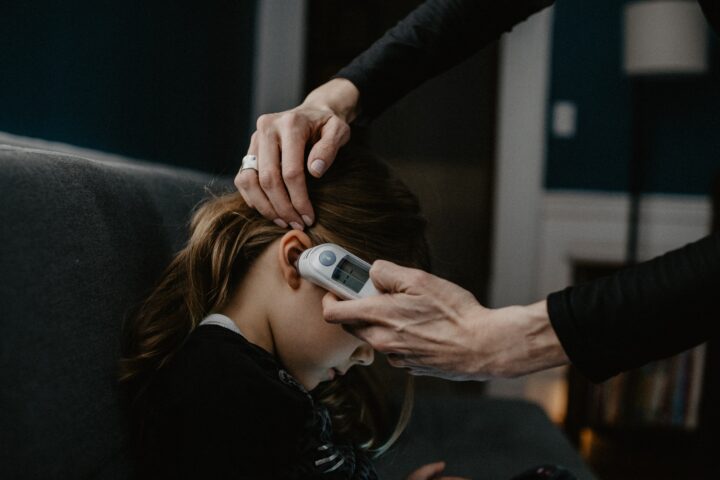The latest data from the UK Health Security Agency (UKHSA) continues to show an out of season increase in scarlet fever and group A streptococcus infections and a higher number of cases than seen in a typical year.

So far this season (from 12 September to 18 December) there have been 27,486 notifications of scarlet fever. This compares to a total of 3,287 at the same point in the year during the last comparably high season in 2017 to 2018 – although cases in that season started to rise at a different point. In 2017 to 2018 there were 30,768 scarlet fever notifications overall across the year.
Invasive group A streptococcus (iGAS) infections remain rare. So far this season, there have been 126 iGAS cases in children aged 1 to 4 compared to 194 cases in that age group across the whole year of the last comparably high season in 2017 to 2018. There have been 88 cases in children aged 5 to 9 years compared to 117 across the whole year of the last comparably high season in 2017 to 2018. The majority of iGAS cases continue to be in those over 45 years.
Sadly, so far this season there have been 94 deaths across all age groups in England. This figure includes 21 children under 18 in England. In the 2017 to 2018 season, there were 355 deaths in total across the season, including 27 deaths in children under 18.
Dr Colin Brown, Deputy Director, UKHSA, explained, “I understand how this large rise in scarlet fever and ‘strep throat’ may be concerning to parents, however the condition can be easily treated with antibiotics and it is very rare that a child will go on to become more seriously ill. At this time of year, there are lots of winter illnesses circulating that can make children unwell and I would urge all those eligible for free winter vaccines to take advantage of these.
“Most winter illnesses can be managed at home and NHS.UK has information to help parents look after children with mild illness. NHS services are under huge pressure this winter, but please visit NHS.UK, contact 111 online or your GP surgery if your child has symptoms of scarlet fever or ‘strep throat’ so they can be assessed for treatment.”
Symptoms of Scarlet Fever
The first symptoms of scarlet fever include flu-like symptoms, including a high temperature, a sore throat and swollen neck glands (a large lump on the side of your neck).
A rash appears 12 to 48 hours later. It looks like small, raised bumps and starts on the chest and tummy, then spreads. The rash makes your skin feel rough, like sandpaper.
On white skin the rash looks pink or red. On brown and black skin it might be harder to see a change in colour, but you can still feel the rash and see the raised bumps.
Contact 111 (online if child over 5) or GP surgery if your child has scarlet fever symptoms.
Symptoms can include nausea and vomiting.
Symptoms of ‘Strep’ Throat
The symptoms of ‘strep’ throat include:
• flu-like symptoms, such as a high temperature, swollen glands or an aching body
Contact 111 (online if child over 5) or GP surgery if your child has ‘strep’ throat symptoms.
Symptoms of iGAS
The symptoms of iGAS include:
• high fever
• severe muscle aches
• localised muscle tenderness
• increasing pain, swelling and redness at site of wound
• unexplained diarrhoea or vomiting
There are several viruses circulating that cause sore throats, colds and coughs. These should resolve without needing medical attention. Antibiotics are not needed for viral infections. However, children can on occasion develop a bacterial infection at the same time as a virus and that can make them more unwell.
As a parent, if you feel that your child seems seriously unwell, you should trust your own judgement. Contact NHS 111 (online if child over 5) or your GP surgery if:
• your child is getting worse
• your child is feeding or eating much less than normal
• your child has had a dry nappy for 12 hours or more or shows other signs of dehydration
• your baby is under 3 months and has a temperature of 38°C, or is 3 to 6 months and has a temperature of 39°C or higher
• your baby feels hotter than usual when you touch their back or chest, or feels sweaty
• your child is very tired or irritable
Call 999 or go to A&E if:
• your child is having difficulty breathing – you may notice grunting noises or their tummy sucking under their ribs
• there are pauses when your child breathes
• your child’s skin, tongue or lips are blue
• your child is floppy and will not wake up or stay awake
Find out more about the IQM Inclusive School Award
If your school is interested in obtaining the IQM Inclusive School Award or you wish to talk to a member of the IQM team please telephone:
028 7127 7857 (9.00 am to 5.00 pm)
or email: [email protected] for further details.
Want more information on the IQM Award? Click here to request your free IQM information pack.